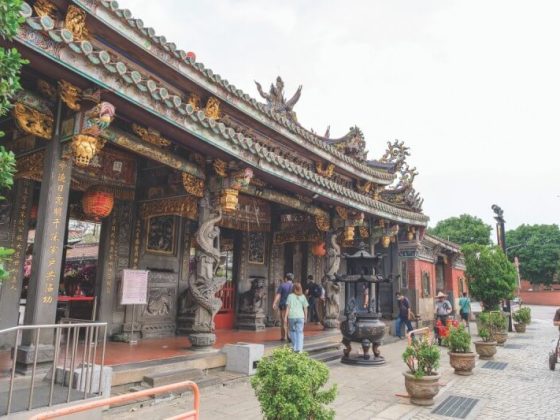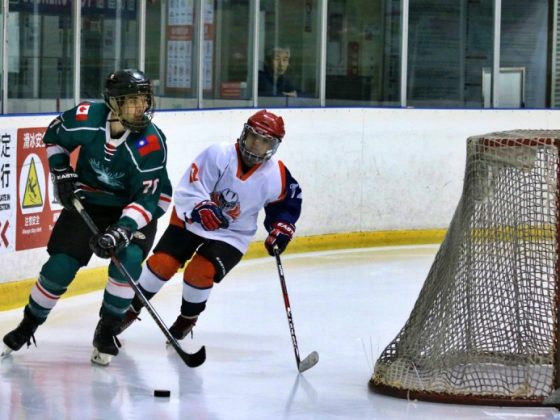With the large number of migrant workers from Southeast Asia coming to Taiwan in recent years, the Muslim community has become another highlight of the cultural landscape. From feeling unfamiliar and slowly developing curiosity about foreign cultures to gradually understanding the Islamic way of life, Tony Thamsir (譚雲福) believes that Taiwan’s pluralistic and tolerant nature not only makes Muslim friends who come to live or work here feel comfortable and welcome, but also enriches their own cultural breadth.
As a Chinese Indonesian who grew up in Indonesia, Tony has accumulated a profound and keen understanding of the situation of migrant workers from Indonesia. However, he initially did not fully empathize with this community at the beginning. As a person of both Indonesian and ethnic Chinese descent, his family was among those affected during anti-Chinese movements in Indonesia. Although such events are due to complex historical and political factors beyond individual control, communities were inevitably divided. It was not until he was hired as a foreign labor counselor at the Taipei City Labor Bureau that he was able to gradually open his heart in the process of helping those who sought help. (Read also: A Reason for Migrant Workers to Stay)
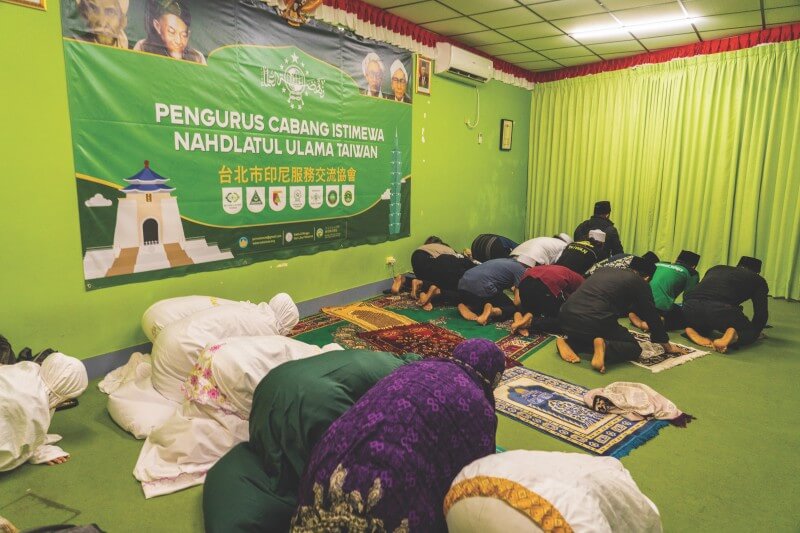
“I had to protect my fellow Indonesian countrymen at work, and I became a solid bedrock for them in a foreign country, so I decided to put aside my prejudices and care for them instead,” recollects Tony. In addition to assisting in mediating labor disputes or protecting migrant workers from violent treatment by unscrupulous employers, he most often had to deal with issues arising from religious and cultural differences. For example, some local employers cannot accept migrant workers wearing white headscarves at home for prayer rituals, and sometimes require their Muslim employees to eat pork. He yearned that the local people could have a better understanding of the norms of Islam. “The time to perform religious rituals is a time for individuals to communicate with God,” he says, “just in different ways for each faith. If we can appreciate the ritual beauty of the Dajia Mazu Pilgrimage (大甲媽祖遶境) and Christmas festivals, then we can also try to see the moving stories behind the Islamic rituals that are also filled with devout devotion.”
Today, there is more or less a basic understanding of the Muslim way of life, with prayer rooms in public places and more halal-certified restaurants and hotels. Tony credits the Taipei City Government and its promotional policies for helping with this improvement. “It’s not easy to change one group’s mindset about another group, and Taiwan has been able to do so relatively quickly over the past two decades.” He encourages everyone to appreciate and understand foreign cultures through friendly exchanges, and to understand, respect, and tolerate the differences between them.
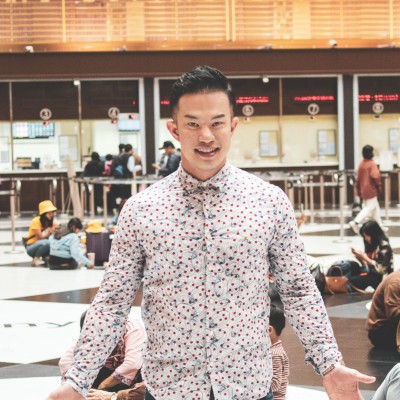
Tony Thamsir
He is currently the Indonesian language news anchor of Public Television Service (公共電視), and the Indonesian language program host of Radio Taiwan International (中央廣播電台). Since first coming to Taiwan from Indonesia to study in 1994, he has been living here ever since. As a former foreign labor counselor at the Department of Labor, Taipei City Government, he has become very active in the migrant worker community over the years and has become an important communication bridge between locals and Muslim migrant workers.
We Are Actually All Muslims
With more and more Muslim friends living in Taiwan, the local culture has taken on a different outlook. With Tony leading the way, there are several places where we learned about Muslim culture. When we open our hearts to proactively understand it, we will find that identity has long since bridged the gap, and that you and I are the same, just people who are trying to live and prosper on this land.
1. The Spiritual Home of the Faithful: Taipei Grand Mosque
Taipei Grand Mosque (台北清真寺), completed in 1960, has long been an important religious site for Muslims in Taipei, and has the architectural characteristics of a mosque, including not only the common dome design of Islamic architecture, but also the brickwork that incorporates native brickwork, and the distinctive Romanesque corridor, which is worth a closer look and appreciation. (Read more: The Muslim Experience in Taipei)
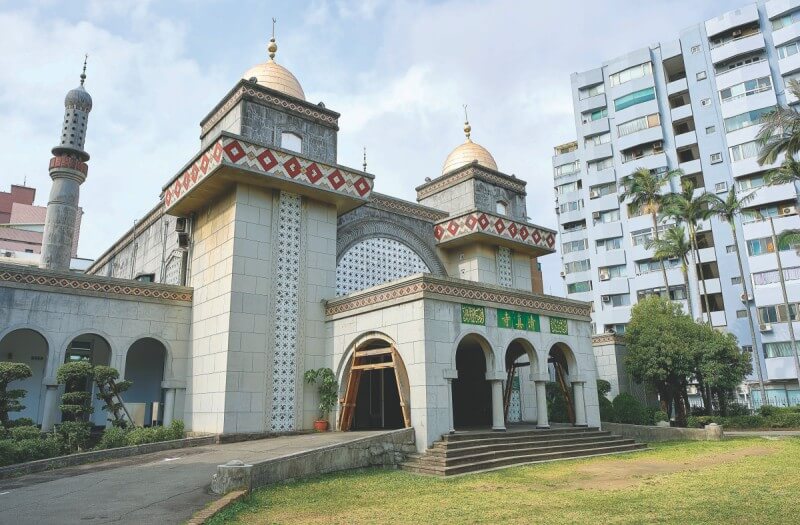
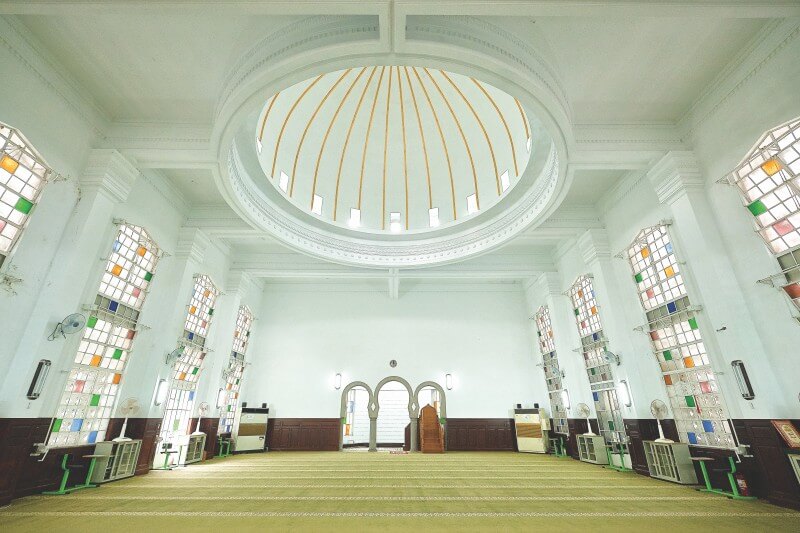
2. Halal-Certified Foodie Paradise: CLC Mart
Located at Exit Y4 of Taipei City Mall (台北地下街), CLC Mart (東南亞食品百貨) sells a wide assortment of products from cosmetics to body lotions, condiments, snacks and deli food. The reason Muslims like to shop here is that they can find the brands they are accustomed to using in their hometowns, and most importantly, all the food sold here is Halal certified, so they can buy with peace of mind.
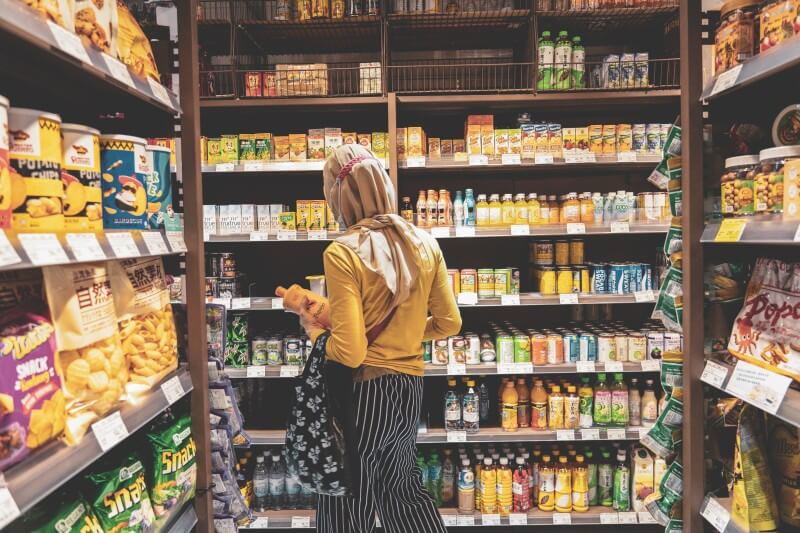
“Taiwan also has chili sauce, so why do they import their own sauce? In addition to the difference in taste, from the pots and pans, to the kitchen, to the production process, all food must be Halal certified. Utensils that have come into contact with non-halal meat should not be used to prepare halal food. The Koran should also be recited before the animal is slaughtered,” explains Tony. In the Islamic precepts, halal has many stringent rules, not just that pork must not be consumed. For non-Muslims, CLC’s Southeast Asian ingredients and freshly cooked food will help them understand the culture of different ethnic groups and appreciate the exotic ambience.
3. Wearing the Muslim Attitude of Life: Butik Ria Taipei
Because of the norms of the faith, clothing has become one of the distinctive cultural features of Muslims. According to Tony, in order to cover the hair, which is considered a symbol of lust and desire in the faith, Muslim women mostly have to wear the hijab, and the degree of covering the hijab provides varies from time to time or region to region. In addition to the pure white clothing worn by Muslim women during prayer rituals, the prints and colors of their clothing on other occasions are quite variable, ranging from plain fabrics to colorful woven fabrics, and the popular colors vary from period to period. “Butik Ria Taipei” is a Muslim clothing store run by Salon Ria, which showcases a wide variety of styles that allows people to explore the beauty of Muslim clothing.
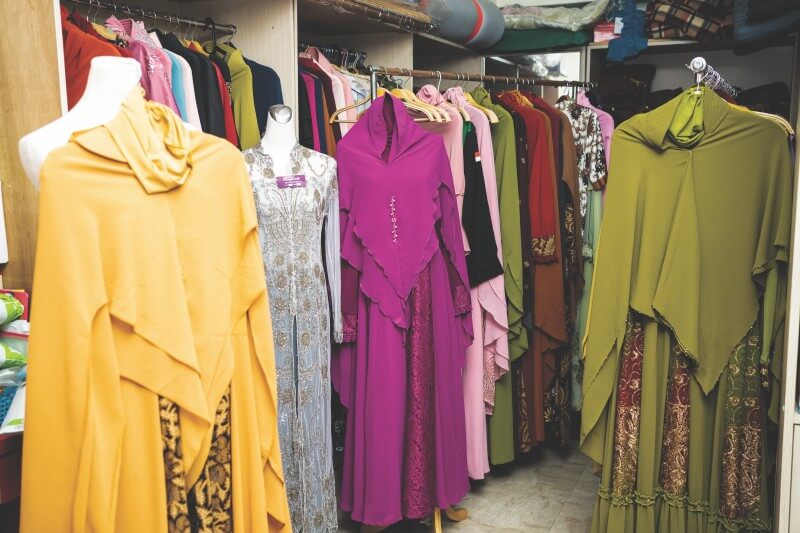
4. Geometric Style Adorned with Flowers and Plants: Dubai Palace
Because of the prohibition of idolatry in Islam, most of the objects in life are decorated with flowers, plants or abstract geometric patterns. Dubai Palace (杜拜皇宮) is a store that sells goods imported from Turkey, Dubai and the United Arab Emirates, where you can find beautifully decorated placemats, tea sets, incense burners and carpets. Different ripple patterns, semicircles and various patterns are stacked on top of each other, and the regular arrangement and colorful combination make for a stunning visual spectacle. Why not pick up a few items to beautify your home with the beauty of Muslim culture and craftsmanship?
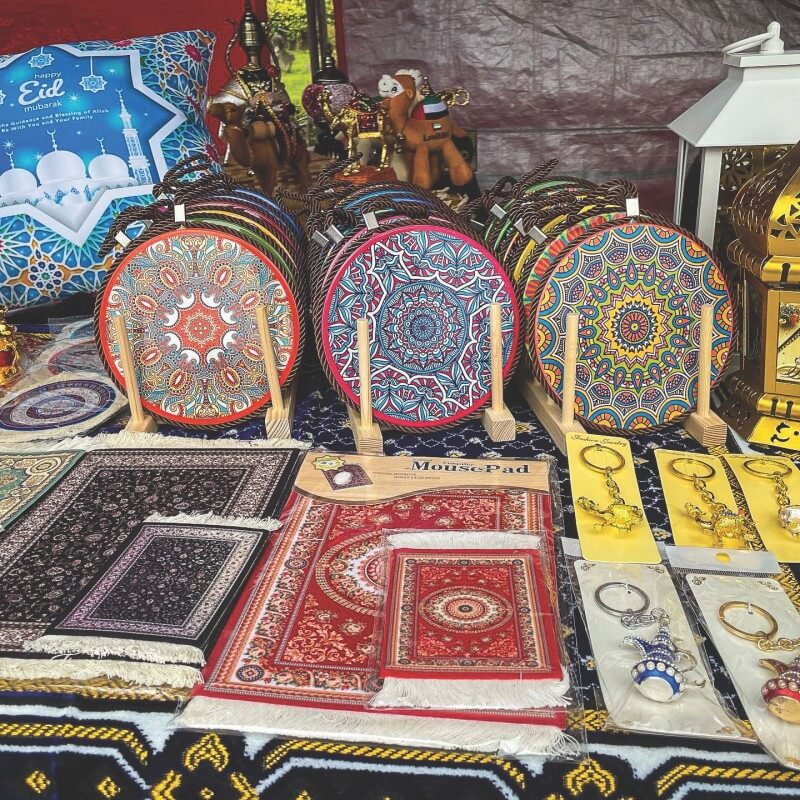
Author: Lin Jiahui
Photographer: Chen Zhichen, Dubai Palace, Yenyi Lin
Editor: Joe Henley
This article is reproduced under the permission of TAIPEI. Original content can be found on the website of Taipei Travel Net (www.travel.taipei/en).


